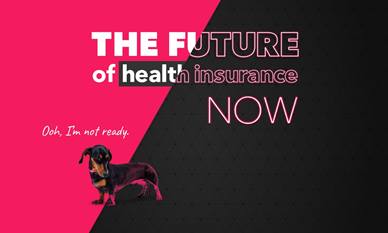Adviser views: The changing face of health insurance
Increased demands on the healthcare system, rapid digital innovation, and added focus on health and wellbeing are contributing to a level of client interest in private medical insurance (PMI) not seen for many years. We asked three top health insurance brokers what they are seeing in the market.
It’s widely anticipated in the private medical insurance (PMI) market that rising consumer interest in health insurance is only going to continue1, especially considering challenges around healthcare access in the UK2 and with health and wellbeing in the spotlight like never before.
“The PMI market has seen a lot of development in the past few years and is relatively buoyant given the increased demand due to Covid,” said Brian Walters, managing director of Regency Health.
However, with this influx of enquiries about health insurance has come varying levels of appetite. “This is bringing new clients to the market, but also people who are more budget conscious,” said Ian Sawyer, director of Assured Futures. “This means that advisers and online offerings need to give customers good choice and level of cover whilst also taking into account their budget.”
Tailored solutions
Those brought into the market off the back of limited access to healthcare often enter “at a keen price point”, said Brian Walters. However, for some who are awaiting treatment, pre-existing condition exclusions – where individual and small business customers cannot claim for conditions they have at the point of purchasing a policy - might prove to be an obstacle, added Sawyers.Many brokers are dialling down out-patient limits or offering directional-care options for customers who are more cost-conscious. For some, this may be a false economy. “Although higher access options can also be prudent, especially given that claims made within the excess do not trigger claims loadings,” said Walters.
While more traditional guided options might be suited to those who are happy to defer consultant choice to their insurer, they are not always the best option for clients, Walters added. “Too many brokers are defaulting to these options as a means by which to get a cheap price in front of a client and thus gain a competitive advantage. It's important that the suitability of a directional care plan is established through robust fact-finding and the claims process - as well as the constraint of choice - clearly explained to the client.”
Vitality’s creation of a Premier Consultant Panel, comprising consultants who deliver superior performance outcomes at an aggregate level – including reduced lengths of stay in hospital and lower re-admission rates for patients – extends the benefits of directional care beyond cost-saving, and provides greater peace of mind for clients.
He added: “This said there is still a place for full hospital lists mainly those who have had health insurance for a number of years or that are coming off a group policy as they are used to having choice.”
Digital evolution
The pandemic has sped up changes that were already on the horizon and advisers have seen the mindset of clients shift as a result. “We have realised things can be done differently and can work just as well if not better,” said Clare Ginnelly, managing director of Premier Choice. “Online and digital services have been a lifeline for many people during the pandemic, so the benefit of them is clear to see.”These offerings are “effective and efficient” but Ginnelly warned that they should not replace traditional routes to care. Some patients still want the option of seeing a doctor too. “Online and digital should always complement the proposition.”
To communicate an extra layer of value to clients, brokers are increasingly calling upon the availability of services such as virtual GPs, online mental health support and other forms of digital treatments. “Making sure these benefits are in their policies is more important to them as they have been in such high demand,” added Ginnelly.
“Digital care offerings offer PMI customers amazing value, especially digital GP services that can help improve access to care,” continued Walters. “However, too few clients are aware that these services are bundled with their health insurance so more needs to be done to educate our customers. Sometimes these benefits can get buried, so brokers should make mention of these services during the advisory process.”
Clients are showing more interest in these types of services. “Digital care is something that is discussed more and more and is of immediate and growing importance,” said Sawyers, especially where they are widely available to family members and offered without limits.
He also cited remote screenings, involving annual blood test kits and home diagnostics, as another evolution for the market, something introduced to Vitality PMI members as part of primary care cover since August 2019.
What’s next?
For employer-led schemes, wellbeing and workplace productivity is a hotter topic than ever due to the pandemic, so this will continue to become an increasingly important aspect of health insurance propositions going forward. “Employers know their employees are looking for these type of staff benefits so the opportunities will be there for the market to grow,” said Claire Ginnelly.“Organisations understand the staff benefits gained from health insurance policies and will look to see how they can purchase more – possibly with no extra budget – so more staff are covered. This could mean they look to take out something like Vitality at Work if they have a Vitality PMI policy,” she added.
For Sawyers, the priority is to position PMI as “supporting the NHS” rather than “competition with” especially in light of growing pressure on the healthcare system and as the economy recovers.
“I think the industry will ride this wave and see a period of relative stability,” added Walters.
Find out how we are transforming health insurance for your clients with our member-driven approach.
Sources:
1. https://www.covermagazine.co.uk/news/4032909/demand-pmi-rise-2021-amii
2. https://www.bbc.co.uk/news/health-57419504
Where to next?
-
Future of health insurance
We've been transforming our health insurance proposition with a member-driven approach. See the latest enhancements.
-
Healthy Hybrid Report
An evaluation on the health impacts of lockdown and recommendations for businesses to reset their approach to health and wellbeing to create a new ‘healthy hybrid’ flexible working environment.
-
Insights Hub
Our Insights Hub brings you our range of adviser content - from video series to articles & blogs.


